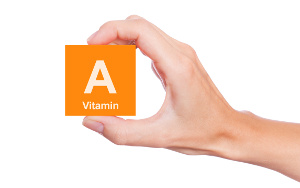Vitamin C may prevent cataracts
 Cataracts is a common cause of impaired vision, especially among the elderly. However, a new study of twins and the impact of genetic and environmental factors shows that higher intake of vitamin C may have help prevent this eye disease.
Cataracts is a common cause of impaired vision, especially among the elderly. However, a new study of twins and the impact of genetic and environmental factors shows that higher intake of vitamin C may have help prevent this eye disease.
Cataracts is an eye disease that causes cloudiness or opacity in the normally transparent crystalline lens of the eye as a result of oxidation. The condition develops gradually, and in more severe cases it is possible to see through the pupil that the lens is grey. Accelerating cataracts causes blurry vision, many people get blinded by sunlight, and severe cataracts is known to cause heavily impaired eyesight, especially at night. It is not possible to correct cataracts with glasses or contact lenses, for which reason it is vital to prevent or delay the disease with help from natural solutions. Also, if possible, one should avoid eye surgery.
33 per cent reduction of cataracts and clearer lenses
The above mentioned study, which was conducted by scientists from King's College in London, included 324 female twin pairs. Over a period of 10 years, the researchers monitored the development of cataracts by examining photos of the participants' eyes, hereby observing in detail the progressing lens opacity. At the same time, the participants' vitamin C intake was determined by means of dietary questionnaires.
The researchers found that in those participants who had the highest vitamin C intake, cataracts developed at a rate that was 33 per cent lower than in those participants who consumed the least vitamin C. Consequently, the participants who had the highest vitamin C intake had the clearest lenses, suggesting that their eyes were in better condition. The study is published in the journal Ophthalmology in 2016.
Environmental factors mean more than geneticsThe researchers also observed that environmental factors such as e.g. diet have much greater impact than genetic factors on the development of cataracts. Genetic factors only accounted for around 30 per cent of the changes that were observed in the lenses of the participating twin couples. In other words, a lot can be done by changing our lifestyle. |
The vitreous body requires vitamin C
The eye fluid - also known as the vitreous body - keeps the eye lens moist. This fluid contains large concentrations of vitamin C, which is an antioxidant that protects against oxidative damage caused by free radicals. The researchers assume that it was the high intake of vitamin C that delayed the progression of cataracts, simply by increasing the vitamin C content in the vitreous body.
Simple dietary changes may improve vision in millions of people
Cataracts is the leading cause of blindness in the world, especially in developing countries where health services are often inadequate. Because eye surgery is the only acknowledged treatment for cataracts, there is every reason to prevent the disease by adhering to a healthy diet and lifestyle.
According to Chris Hammond, a professor and eye surgeon at King's College, the study results may have wide implications globally, especially when it comes to the ageing part of the population. It may be possible to lower the risk of developing cataracts and undergoing eye surgery simply by introducing more fruit and vegetables in the diet. However, even though the researchers were primarily focused on vitamin C intake, other nutrients in a healthy diet may also be able to influence the risk of cataracts.
Healthy living and common sense - a good preventative cocktail
Ageing is inevitable and so is the risk of developing cataracts at some stage in life. Nonetheless, vitamin C and other antioxidants may contribute to protecting the body against oxidative stress caused by free radicals. Because smoking and diabetes are also known to increase the risk of cataracts, it makes perfect sense to avoid tobacco, to stay in shape, and to avoid weight gain, all of which influence the risk of type-2 diabetes.
The most common causes of cataracts
|
References:
King's College London. Increased vitamin C in diet could help protect against cataracts. ScienceDaily. August 2016
https://www.sciencedaily.com/releases/2016/03/160323220408.htm
Wolters Kluwer Health. Cholesterol-lowering drugs may be linked to increased cataract risk. ScienceDaily. August 2012
https://www.sciencedaily.com/releases/2012/08/120807104728.htm
http://www.netdoktor.dk/sygdomme/fakta/graastaer.htm
Search for more information...
- Created on .












 "After about one week of taking the Q10 supplement I could feel a huge difference," says 23-year old Alan Piccini, who has been suffering from extreme fatigue and muscle aches ever since he was a child.
"After about one week of taking the Q10 supplement I could feel a huge difference," says 23-year old Alan Piccini, who has been suffering from extreme fatigue and muscle aches ever since he was a child. “Taking capsules with co-enzyme Q10 has freed me of the severe side effects of my cholesterol lowering medicine,” Mrs Franken explains.
“Taking capsules with co-enzyme Q10 has freed me of the severe side effects of my cholesterol lowering medicine,” Mrs Franken explains.